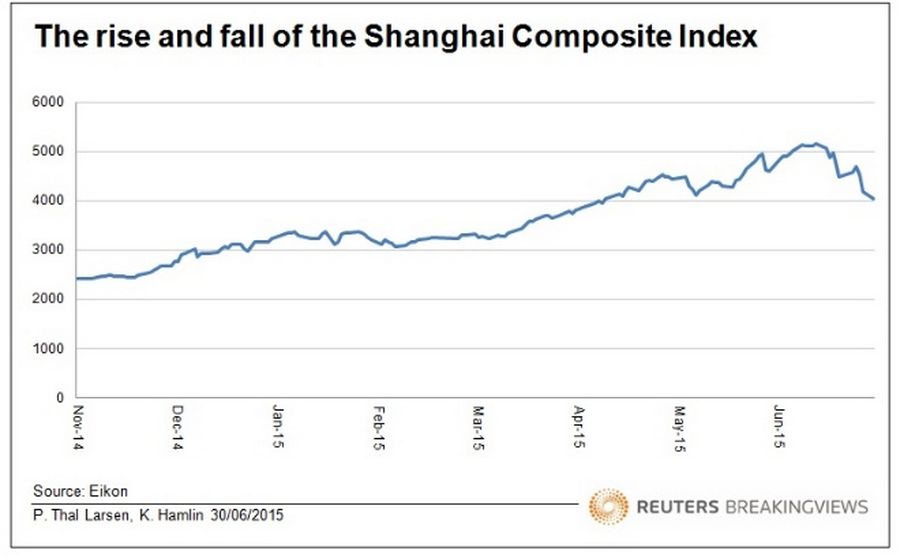When China’s rulers talked about markets playing a “decisive” role in the economy almost two years ago, they probably didn’t envisage a stock market slump. Now equities are sliding. It will take more than lip service to restore confidence.
China’s bull run was fuelled by leverage and hot air. Vague hopes for corporate reform, combined with an explosion of margin financing, induced tens of millions of retail investors to divert cash into the stock market. The inevitable correction has been harsh. Shanghai’s SSE Composite Index lost more than a fifth of its value in just over a fortnight.
A cut in interest rates and calming words from regulators had little immediate effect. Investors have added to the selloff by unwinding leveraged bets. Margin lending has declined from a peak of almost 2.3 trillion yuan ($370 billion) while unofficial loans – which by some estimates are almost as large – are also being called in.
The immediate fallout looks contained. Only a minority of the population owns stocks. Most of them are likely still to be sitting on healthy gains. Retail data shows little sign of investors spending their gains, so the economic impact of the downturn should be limited. The losers would be companies who had hoped to issue equity for funding.
China’s leaders will probably respond by pushing official funds into the market. Plans to allow pension funds to invest in stocks, announced by state media on June 29, may have been in the works for a while. Yet, like the weekend’s rate cut, the timing of the announcement suggests it is part of a concerted campaign.
That might even work. Japanese Prime Minister Shinzo Abe has waged a successful campaign to force the country’s giant Government Pension Investment Fund to shift more assets into equities.
In the long run, however, higher equity returns will depend on Chinese companies – many of which are state-controlled - becoming more efficient and more profitable. That’s an area where markets have so far proved anything but decisive.
